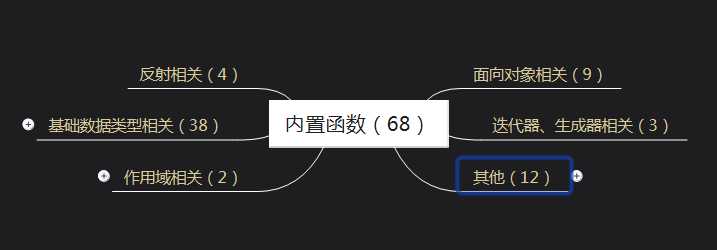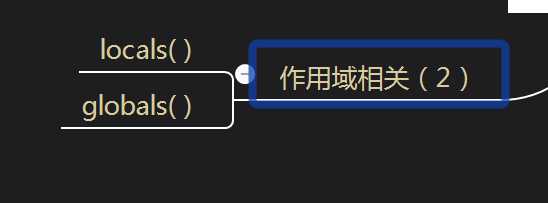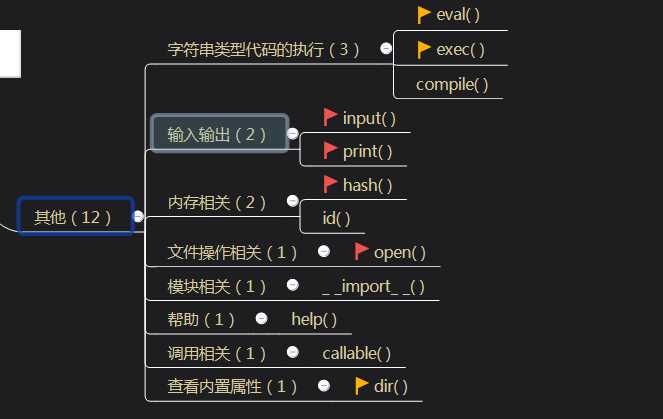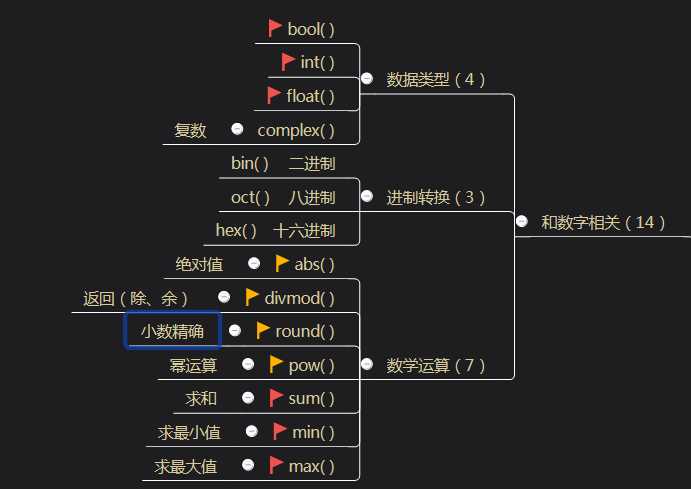标签:class whether word 生成 tar 命令行 3.1 inf local
截止到python版本3.6.2,现在python一共为我们提供了68个内置函数。它们就是python提供给你直接可以拿来使用的所有函数。


print(globals()) # 返回本地作用域中的所有名字 print(locals()) # 返回全局作用域中的所有名字 注意与函数中的global、local、nonlocal 关键字的区别

for i in range(10): print(i, end=‘ ‘) >>>0 1 2 3 4 5 6 7 8 9 for i in range(1, 10, 2): print(i, end=‘ ‘) >>>1 3 5 7 9


dir() # pass print(callable(func)) # callable()接受一个函数名则返回True,接收其他变量返回False,可用于判断变量是否为函数!鸡肋 help() # 鸡肋 import # 导入模块 open() # 打开文件 hash() # 字典中的键所对应的就是hash值 ------------------------------------------------ input() # 用于与命令行的交互 print() # 查看print的源码 def print(self, *args, sep=‘ ‘, end=‘\n‘, file=None): # known special case of print """ print(value, ..., sep=‘ ‘, end=‘\n‘, file=sys.stdout, flush=False) Prints the values to a stream, or to sys.stdout by default. Optional keyword arguments: file: a file-like object (stream); defaults to the current sys.stdout. sep: string inserted between values, default a space. end: string appended after the last value, default a newline. flush: whether to forcibly flush the stream. """ pass print(1, 2, 3, sep=‘|‘) >>>1|2|3 f = open(‘file‘, ‘w‘) print(‘aaa‘, file=f) # 打印内容到指定文件 ----------------------------------------------------------------------- eval(‘print(123)‘) exec(‘print(123)‘) print(eval(‘1+2+3+4‘)) # 有返回值 print(exec(‘1+2+3+4‘)) # 无返回值

print(round(3.1415926, 2)) # 限制小数后几位 >>>3.14 print(pow(2, 3)) >>> 8 print(pow(2, 3, 2)) # 2的3次方 / 2 取余 >>> 0 print(sum([1, 2, 3, 4, 5])) print(sum([1, 2, 3, 4, 5], 10)) # sum(iterator, star) >>> 15 25 ----------------------------------------------------------------------------------- print(min([1, 2, 3, 4, -5])) print(min([1, 2, 3, 4, -5], key=abs)) # 还可以接收函数 >>> -5 1
未完待续。。。
05python 的内置函数以及匿名函数(python函数)
标签:class whether word 生成 tar 命令行 3.1 inf local
原文地址:https://www.cnblogs.com/pontoon/p/10240392.html